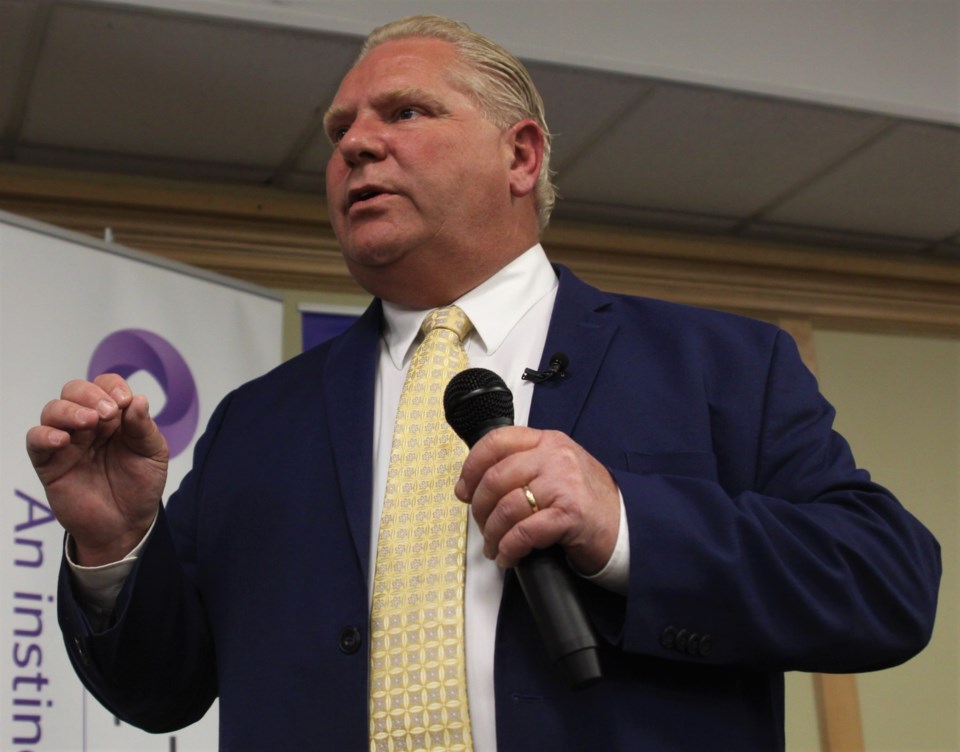THUNDER BAY - With cases of COVID-19 surging in Ontario, Premier Doug Ford said Ontario is officially in the second-wave, and how severe this wave will be depends on the actions of everyone in the province.
“Ontario is now in the second wave of COVID-19,” Ford said during his daily media briefing on Monday. “We know this wave will be more complicated, complex, and worse than the wave we faced earlier this year.”
The declaration follows Ontario reporting 700 new COVID-19 cases on Monday, which is the highest daily reported number of cases since the pandemic began.
The majority of new cases are in Southern Ontario and 60 per cent of cases are in people under the age of 40.
Forecasts indicate the province could see 1,000 new daily COVID-19 cases by mid-October with no interventions.
Ford said several times on Monday that the second-wave will be worse than the first wave in the spring.
“What we don’t know yet is how bad the second wave will be,” he said. “The reality is it’s up to each of us. Our collective actions will determine if we face a wave or a tsunami.”
Dr. David Williams, chief medical officer of health, said he does not believe it will be a tsunami and the province is experiencing more of an undulating wave, but it will be up to the people of Ontario to keep it from reaching those levels.
“Right now, we are anticipating that as we keep going it could be a lot worse than the first wave,” he said. “We like to hope we can keep on top of this and ask the public to really hunker down and see if we can flatten this curve like we did last time.”
Testing is also up compared to the first wave, when the province was struggling to conduct 10,000 daily tests. It is now conducting approximately 41,000 tests per day.
Hospitalizations have remained low despite the surge in cases, but Williams said it usually takes a week or two to see if more people are admitted to hospital following a new rise in cases.
In an effort to prepare for the surge in cases in the second-wave, the provincial government is investing more than $52 million to recruit more frontline health care workers.
The funding will be used to recruit, retain, and train more than 3,700 nurses and personal support workers for long-term care.
Of the funding, $14 million will be used for personal support worker training in home, community care, and long-term care.
The new Personal Support Worker Return of Service Program will receive $10.3 million to recruit and retain recent graduates to work in long-term care homes and in the home and community care sectors.
A $5,000 incentive will also be provided to 2,000 personal support workers in the program for a six-month commitment to work in community and long-term care.
The Ontario's Nursing Graduate Guarantee program will receive $18 million for benefits for more than 600 nurses with a focus on recruiting in areas of need such as long-term care homes and acute care settings.
An additional $8 million will be used to recruit more than 800 nurses to the health system in areas of need across the province.
Williams and Ford are encouraging the people of Ontario to continue to follow all public health guidelines, get a seasonal flu shot, and to download and use the COVID-19 alert app.
“Hopefully, we might be able to flatten it down and it might not be worse,” Williams said.
The provincial government has already reintroduced restrictions on the size of social gatherings across the province, as well as forcing bars and restaurants to stop serving alcohol at 12 a.m.
“Everything is on the table,” Ford said. “We’ve already taken countless steps to restrict gatherings to address the hotspots. We’ve been working around the clock we have been preparing all summer for this situation.”
